Business
Tony Elumelu Reveals How Buhari, Abba Kyari Blocked His 2017 Oil Field Acquisition
Published
8 months agoon
By
Ekwutos Blog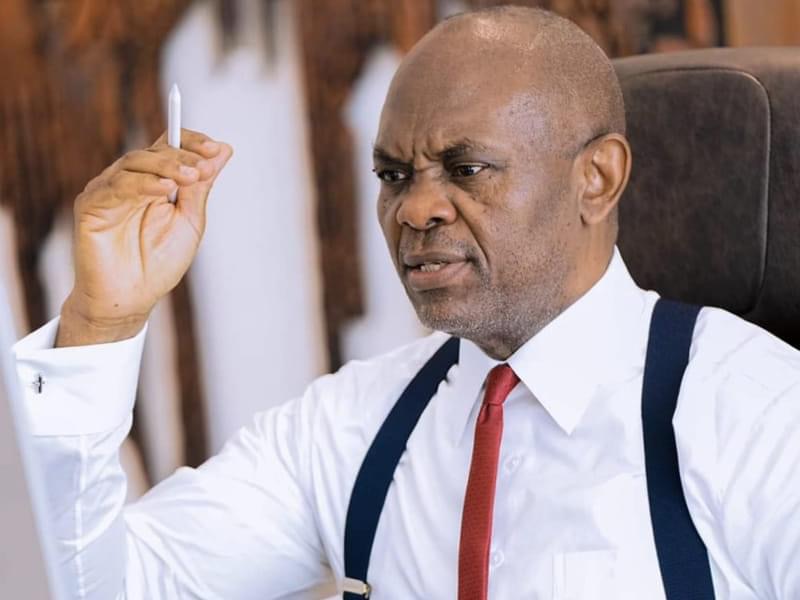
Tony Elumelu says Buhari and Abba Kyari blocked his 2017 oil field purchase, despite raising $2.5bn for the deal.
The Chairman of Heirs Holdings, Mr. Tony Elumelu, has disclosed how former President Muhammadu Buhari and his chief of staff, the late Abba Kyari, blocked his initial move to acquire an oil field in 2017.
Elumelu, who is also the Chairman of the United Bank for Africa Plc, said this in an interview in The Financial Times. According to him, Heirs Holdings was looking to purchase an oilfield since 2017, and had raised $2.5 billion to purchase one.
But he alleged that in a twist, Buhari and the late Abba Kyari, blocked the deal.
He said he was told that Nigeria couldn’t allow something of such strategic importance to fall into the hands of a private operator. This, according to Elumelu, defied logic since he would have been purchasing it from a foreign company.
However, Elumelu’s decision to buy a 45 per cent stake in an oilfield three years ago surprised many. International oil companies such as Shell, Total and Eni were selling off their shallow water assets in Nigeria, with local companies taking charge. In 2021, his Heirs Holdings acquired OML 17, an onshore oilfield as part of a deal that included $1.1 billion in financing from a consortium of global and regional banks and investors.
Shell, Total and Eni each had sold stakes in the OML 17 field, which has production capacity of 27,000 barrels of oil equivalent per day and estimated reserves of 1.2 billion barrels of oil equivalent, Heirs said.
When asked if he felt like getting in at the end of the party by buying an oil asset in the age of energy transition and environmental, social and governance investing, Elumelu said: “We wanted to become a Fortune 500 company and we estimated what we needed. It’s not naira, it’s huge dollars.”
Energy security is crucial for a country that doesn’t produce enough electricity for its roughly 200 million citizens, he added.
He said he discovered first-hand why international oil companies were partly divesting from onshore assets, after criminal gangs began stealing crude from his pipelines.
In 2022, when things got to a point where his company had to shut down production, Elumelu vented his frustration on social media, tweeting: “How can we be losing over 95 per cent of oil production to thieves?”
Today, though, business is looking up. Elumelu, according to the newspaper, showed the status updates he received on his phone from the field: 42,000 barrels of crude pumped out daily. Theft still takes away about 18 per cent of production, he said.
When asked who was behind oil theft in the country, he said: “This is oil theft, we’re not talking about stealing a bottle of Coke you can put in your pocket. The government should know; they should tell us. Look at America — Donald Trump was shot at and quickly they knew the background of who shot him. Our security agencies should tell us who is stealing our oil. You bring vessels to our territorial waters and we don’t know?”
The proponent of Africapitalism stressed the need for Africa’s private sector to actively contribute to the continent’s growth.
“We need to run government like a business,” is his formulation of how African governments should work, with administrations held accountable by legislatures as shareholders do chief executives.
Speaking about his career trajectory, Elumelu whose father was a builder and mother a caterer said: “I had a very fast career.”
At 26, having earned a masters in economics at the University of Lagos, he became a branch manager of the bank where he began his career. “It was unheard of. I like to take my destiny in my hands.”
Elumelu was at the helm of UBA for another five years until a central bank edict that turfed out long-serving bank bosses put him out of a job.
“2010 was a pivotal year for me,” he said while speaking about his ouster as UBA boss.
“The central bank ruling was a complete surprise . .Was it fair? Look, as someone who believes in governance, it probably makes sense, but it was a shock. But it was also liberating, catalysing,” he added.
By the end of that year, he had formed Heirs Holdings, the investment engine that launched the second act of his career and turned him from a banker to a multi-sector magnate.
“I don’t live for myself or my family alone, I know people look up to me,” he said of his fame outside of the boardroom.
“I try to make sure I don’t disappoint people. Young Africans need role models, they want people they can look up to,” he added.
If Elumelu is thriving, his country decidedly is not. Nigeria is in the grip of its worst economic crisis in a generation, with growth stalling and inflation at levels not seen in almost three decades.
Elumelu’s philosophy of “Africapitalism” is based on the premise that the continent cannot grow solely through the government, and that the private sector should actively invest even when — especially when — socio-economic conditions are tough.
“We can sit here today and the easiest part of the conversation would be to talk about all the things that have gone wrong, all the things that people have failed to do.
“But therein lies the philosophy of Africapitalism. For far too long, we have blamed foreign powers. We have blamed our own leaders. But what are we as the private sector doing to make things better? It’s a call on the private sector to stand up and show the way. Let us show the way through what is in our own power. We have the power to make investment decisions.”
With investments in 20 African countries and thousands of employees, he believes he is playing his own part. And through grants from his eponymous foundation, he says he is “democratising luck” for young entrepreneurs.
“I have my frustrations across the continent but I also have my wins . . . what I’m saying is we need to do something to have a better society.”
As a member of President Bola Tinubu’s presidential economic advisory committee, he is one of a handful of business leaders close to the administration. The reforms that Tinubu — whose “courage” Elumelu likes — has embarked on are necessary for long-term growth, Elumelu said, but he wonders if the sequencing of removing costly but popular fuel subsidies and a sharp devaluation of the naira currency could have been implemented better to first provide a social safety net for the most vulnerable in society.
“I support it, totally,” he says of skilled young Nigerians emigrating. “I don’t have a problem with people saying ‘I’m going to Canada, UK or US.’
“Joblessness is the betrayal of a generation. You’ve gone to school and come back with your dreams and aspirations and you don’t have the opportunity . . . People who decide to find solutions elsewhere, no one should stop them. But for those who decide to stay, they should try to create an impact and build a legacy.”
Be sure to follow ekwutosblog for confirmed updates
You may like
If you are afraid of insecurity in your village to the extent you cannot live or operate from there, then you are not qualified to answer a Dibia, Ezenwanyi, Nze, Obi, Ezeani, Igwe.- Nze Tobe Osigwe
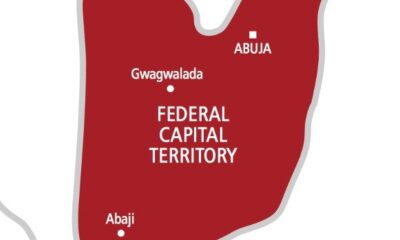

Abuja mother dumps baby by roadside


Trading platform users deny crash claim
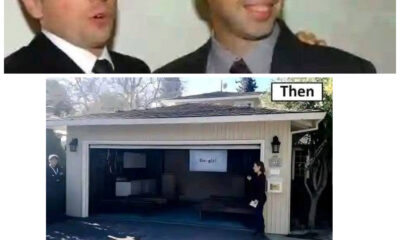

GOOGLE’S $2 TRILLION STORY: FROM HUMBLE BEGINNINGS TO GLOBAL DOMINATION


Nigerians score CrediCorp, power, agric ministries low
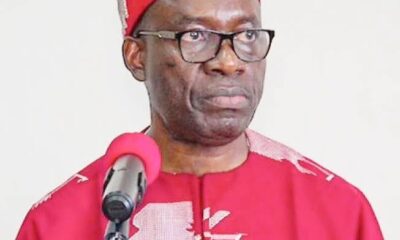

We must stop contaminating our rivers and streams in the name of ‘odinani’ (tradition)—- Gov Chukwuma Soludo
Business
Nigerians score CrediCorp, power, agric ministries low
Published
2 hours agoon
April 13, 2025By
Ekwutos Blog
Nigerians have rated the Ministries of Power and Agriculture and Food Security low on the Presidency’s Central Results Delivery Coordination Unit tracker, Sunday Ekwutos reports.
Data obtained by our correspondent from the tracker also revealed that the Ministry of Interior topped the chart, buoyed by multiple five-star reviews applauding improvements in passport and visa issuance.
On April 8, 2024, the Special Adviser to the President on Policy and Coordination and head of the CDCU, Hadiza Bala-Usma, inaugurated the Citizens’ Delivery Tracker.
Bala-Usman said the tracker would provide a “strong feedback loop” between citizens and the government and hold ministers and heads of government agencies accountable based on key deliverables.
“The Citizens Delivery Tracker App…will be constantly modified to enhance ease of use and maintain a strong feedback loop between citizens and their government,” she explained at the Go-Live event of the CDT in Abuja.
According to the latest CDCU data covering the last six months, citizens submitted 217 ratings overall, with an average of 3.1 out of 5 stars across agencies.
“The Ministry of Interior led with an average of 4.3, while the lowest-rated agency, the Nigerian Consumer Credit Corporation, recorded 1.7,” the report read.
Tinubu’s eight priority areas
The deliverables border on the eight priority areas of the Bola Tinubu administration.
The CDT outlined 204 deliverables and 888 indicators to assess government ministries, departments and agencies. The deliverables comprised various government policies, projects and programmes scheduled for completion between 2024 and 2027.
In arriving at the deliverables and key performance indicators, Bala-Usman said the CDCU, supported by development partners and consultants, held numerous bilateral meetings with all the ministers, permanent secretaries, and their respective technical teams for six weeks.
The tracker came months after President Bola Tinubu announced plans for ministerial assessment at the cabinet retreat in November 2023.
At the cabinet retreat for ministers, presidential aides, permanent secretaries and top government functionaries, Tinubu said the CDCU would be strengthened to make citizens an integral part of his government’s monitoring and performance management process.
Direct citizens’ feedback
A summarised breakdown of the feedback availed to Sunday Ekwutos indicated that fertiliser and other inputs did not get to real farmers because of the absence of a proper database.
“I suggest there should be agric extension workers across the 774 LGAs to collate the data and support; that way, genuine farmers will be reached, not paper ones,” Damilola Ogidan, who rated the Ministry of Agriculture and Food Security 2 out of 5, said.
Another respondent, Aimufua Emmanuel, in his rating of the Federal Ministry of Power, wrote, “Your excellency, I don’t know what we have done to God to give us a man like the power minister to take charge of the power sector. He’s by far the least performing minister in your cabinet. Ever since the beginning of this administration, our case has been from frying pan to fire. I live in Sangotedo, and since May last year, we have never had four hours of light in a day. At times we go one week without light blinking for a second, it is very obvious the power minister knows nothing about the power sector, listen to him and you’ll be quick to tell he knows nothing about generation, transmission and distribution of power. This man is clueless.’ He rated the Ministry of Power 1 out of 5.”
However, another Nigerian, Nasir Abubakar, rated the Power Ministry 4 out of 5.
He advised that there should be legislation that would compel power distribution companies to supply electricity to consumers and they should be responsible for the repairs and maintenance of their equipment.
The report continued: “One user, Lukman Kazeem, rated CrediCorp one star, commenting, ‘No indication that this agency is performing. No projects in the project list.’ The Delivery Manager for CrediCorp responded to clarify the agency’s status and ongoing initiatives.
“Oluwafemi Olanrewaju gave the Ministry of Interior five stars, commending ‘the improved processing time for visa issuance,” a key deliverable tied to the ministry’s priority.
“Feedback on the Federal Inland Revenue Service ranged from top marks to mid-level scores. Suleiman Umar rated the FIRS five out of five, stating, ‘I support Zach on his revenue reform…all MDA’s generating revenue should use FIRS account such that they don’t touch the revenue. Let’s have a centralised system of revenue collection.’”
“Segun Owolabi rated the FIRS three out of five, citing issues with taxpayer data: ‘The stats of captured taxpayers across Nigeria has not been consistently updated… many low-income earners are being taxed by their employer even when the law stipulates taxable and nontaxable income.”
CrediCorp recorded the lowest rating, averaging only 1.7 stars.
In the same timeframe, Priority 6—covering Health, Education, and Social Investment—achieved the best performance (74 per cent), while Priority 4—concerning Energy and Natural Resources—posted a comparatively lower figure (53 per cent).
During this period, delivery managers maintained an average response time of 3.2 days, with 30 actively engaging citizen feedback and resolving about 76 per cent of submitted issues.
The CDCU noted that the tracker’s 1 to 5 stars rating system was linked to verified performance indicators for each deliverable.
It encouraged citizens to rate and leave contextual feedback, which ministry representatives would address.
Business
PETROLEUM MINISTRY AND THREE AGENCIES UNDER ITS SUPERVISION PARTICIPATE IN IMF ARTICLE IV CONSULTATION
Published
19 hours agoon
April 12, 2025By
Ekwutos Blog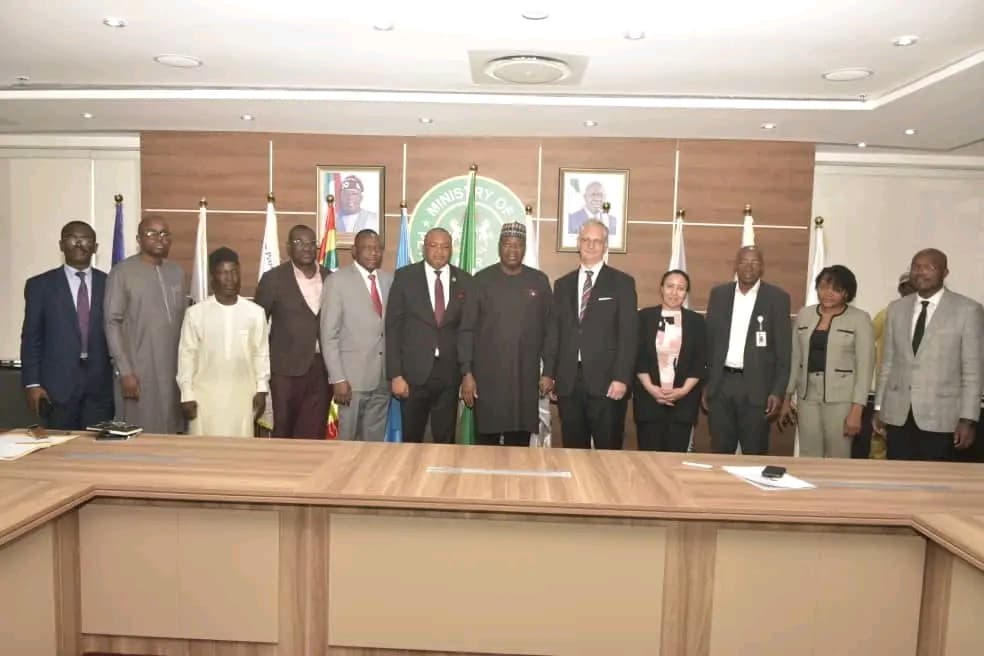
The Ministry of Petroleum Resources (MPR), alongside three agencies under its supervision—the Nigerian Upstream Petroleum Regulatory Commission (NUPRC), the Nigerian Midstream and Downstream Petroleum Regulatory Authority (NMDPRA), and the Nigerian National Petroleum Company Limited (NNPCL), recently participated in the ongoing International Monetary Fund (IMF) Article IV Consultation in Nigeria.
The IMF team was in the country at the invitation of the Federal Government to engage selected government institutions and gather insights on developments across various sectors of the economy.
Speaking during the meeting held in Abuja, the Chairman of the session and Permanent Secretary of the Ministry of Petroleum Resources, Ambassador Nicholas Agbo Ella, expressed appreciation to the IMF team for their continued efforts and commitment to the growth and development of the Nigerian economy, particularly the oil and gas sector.
Ambassador Ella encouraged representatives of NUPRC, NMDPRA, and NNPCL to engage fully in the consultation, stressing the importance of collaboration and innovation in achieving tangible economic outcomes.
During the meeting, the three agencies delivered comprehensive presentations, offering valuable insights into Nigeria’s crude oil production trends and projections. It was highlighted that despite prevailing challenges, the country achieved an average of 88% of its projected crude oil volume, attributed to reduced losses and increased output. Efforts are also underway to revive underperforming assets and improve output from flow stations to terminals.
Regarding gas production, the presentations underscored existing infrastructure developments and ongoing investments aimed at achieving production and distribution targets.
A significant part of the consultation examined the recent fuel subsidy removal by President Bola Ahmed Tinubu and the strategies being employed to ensure its long-term sustainability. Discussions reflected a shared commitment to market-driven reforms and enhanced fiscal responsibility within the petroleum sector.
Participants at the meeting agreed that strong inter-agency collaboration, along with support from development partners and financial institutions, is essential to stabilize global oil markets and strengthen Nigeria’s energy security.
The meeting was attended by Directors, Heads of Units, and staff from the Ministry of Petroleum Resources, representatives from the Federal Ministry of Finance, and IMF consultants.
This successful engagement reaffirmed Nigeria’s strategic commitment to transparency, sustainable growth, and international cooperation in the petroleum industry.
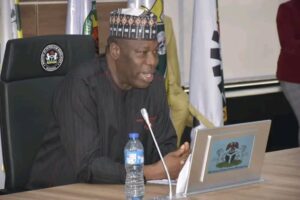
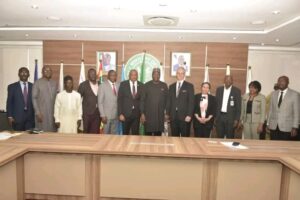

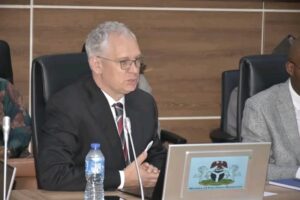
Business
AFDB REAFFIRMS $2.2 BILLION PLEDGE AS VP SHETTIMA COMMISSIONS 2ND SAPZ IN CROSS RIVER ** Says agro-industrial processing zones will empower farmers, attract investors, diversify Nigeria’s economy
Published
2 days agoon
April 10, 2025By
Ekwutos Blog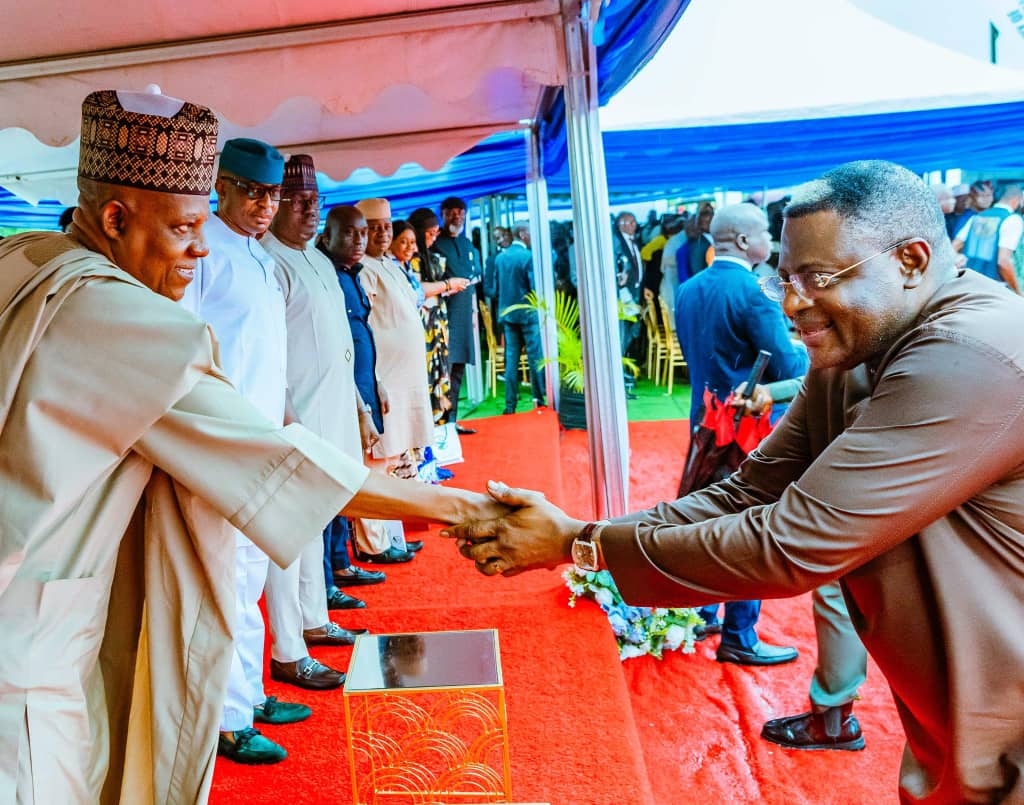
STATE HOUSE PRESS RELEASE
AFDB REAFFIRMS $2.2 BILLION PLEDGE AS VP SHETTIMA COMMISSIONS 2ND SAPZ IN CROSS RIVER
** Says agro-industrial processing zones will empower farmers, attract investors, diversify Nigeria’s economy
The federal government has commenced construction of the Special Agro-Industrial Processing Zone in Calabar, Cross River State, as part of a nationwide drive to transform the agricultural sector and stimulate inclusive economic growth across Nigeria.
This is the second of such a facility initiated within 72 hours after Vice President Kashim Shettima had on Tuesday performed the groundbreaking ceremony for the construction of the Kaduna State SAPZ in the Chikun local government area of the state.
Already, the AfDB_Group has reaffirmed its commitment to mobilising an additional $2.2 billion to execute the second phase of the SAPZ project across 28 states in Nigeria.
Speaking on Thursday when he performed the groundbreaking ceremony of SAPZ in Calabar, the Vice President described the project as “a game changer” that aligns with the President Tinubu administration’s Renewed Hope Agenda, aimed at diversifying the nation’s economy, addressing food security, tackling rural unemployment, as well as empowering farmers and the youth population.
“There is no intervention more practical in our dream of a nation where the potential of agriculture is maximised than what’s brought us together today. This isn’t just a project—it’s a bold vision to transform Nigeria’s agricultural value chain,” VP Shettima said.
According to him, the SAPZ initiative, supported with counterpart funding from development partners and the private sector, is designed to address challenges that have long hindered the growth of Nigeria’s agricultural economy, including inadequate processing infrastructure, limited access to markets, and rural unemployment.
“For far too long, our farmers have contended with poor infrastructure, lack of access to finance, and inadequate processing facilities. This zone is designed to confront those challenges head-on by creating an ecosystem where innovation, investment, and collaboration thrive,” he noted.
VP Shettima explained that the Calabar SAPZ will serve as a hub for agro-processing and storage, providing farmers and agripreneurs with critical infrastructure to scale their operations and tap into local and international markets.
“This is where farmers will meet with private investors, where ideas will turn into enterprise, and where our youth will find meaningful opportunities,” he said, disclosing that the Tinubu administration has classified SAPZ as a priority program in Nigeria’s quest for food security, with plans to institutionalize it as a government agency that will facilitate agricultural industrialization across all 36 states.
“These zones will generate thousands of jobs. They will create opportunities for young people, empower them with skills and knowledge to engage in meaningful work and help them contribute positively to the economy. Cross Riverians, development has come to your doorstep. For you and for the country, SAPZ is a game changer—one that will enable Nigeria to diversify its economy with a sustainable source.,” he stated.
Senator Shettima also expressed gratitude to key international development partners, including the African Development Bank, the Islamic Development Bank, and the International Fund for Agricultural Development, for their support and belief in Nigeria’s vision.
The Vice President commended Cross River State Governor, Senator Prince Bassey Edet Otu, for his collaboration, describing him as “a critical foundation for the success of this intervention and a great ally in development.”
Earlier, Cross River State Governor, Senator Otu, said the programme marked a watershed in the ongoing bid by his administration to establish the renewable resource base of the state through the full utilisation of agriculture and its multiple value chain.
Otu pointed out that in Cross River State, the establishment of a cluster of smallholder farmers in cash crops such as rice, cassava, millet, and cocoa across the state is the right step towards the agro-industrial revolution.
He said the paradigm shift from a non-renewable to a renewable resource base also holds the key to the prosperity of many nations, hence the imperative to join the league of sub-nationals in Nigeria that have adopted agriculture as the mainstay of their economy.
“The deliverables of the envisaged projects are food security, diversification of the state economy towards export-oriented trajectory and increase in the State’s GDP. When these projects are fully operational there is an expected robust collaboration with reputable agro-based processing institutes, universities and the rest, aimed at accelerating breakthroughs in many agro-industrial production.”
Also, Minister of Agriculture and Food Security, Senator Abubakar Kyari, said the programme would transform the agricultural production and agro-investment landscape in Nigeria under the Renewed Hope Agenda of President Tinubu.
Kyari thanked Vice President Shettima for his leadership and political backing at the highest level in the implementation of the SAPZ in Nigeria, just as he also commended the Governor of Cross River State for his commitment to ensuring that the state is among the front-running states that will commence the construction of their Agro-Industrial Processing Hub.
In his remark, President of AfDB, Dr Akinwumi Adesina, reiterated the bank’s pledge to mobilise $2.2 billion to execute the SAPZ project in 28 states across Nigeria.
Adesina observed that Cross River State has a significant role to play in Nigeria’s agricultural transformation because of the vast production of cocoa, cassava, rice and banana in the state, saying Obudu Cattle Ranch alone can turn the state into a huge livestock producer.
He also acknowledged that the state is ideal for SAPZ because it has an export processing zone, ports facility, and export handling capabilities, adding that the SAPZ in Calabar can easily be linked to the seaport for the transportation of processed agricultural commodities to the export market in neighbouring countries, including Cameroon and the rest.
“The African Development Bank, as you know, is spearheading this together with our partners, which include the Islamic Development Bank and the International Fund for Agricultural Development, and we have put together $934 million from the African Development Bank, with core financing of $938 million from these partners.
“The first phase of SAPZ in Nigeria will be in eight states of Cross River, Kaduna, Kano, Katsina, Oyo, Ogun, Kwara, Imo and the Federal Capital Territory. We are delighted with our partnership with the Islamic Development Bank and the International Fund for Agricultural Development.
“We have put together a financing package of $510 million to make this work. We expect, in the second phase of this, to mobilise $2.2 billion to be able to work for 28 states across the federation with several partners,” the AfDB President said.
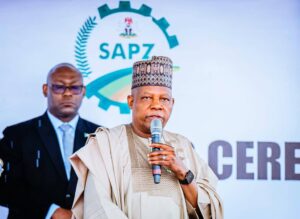
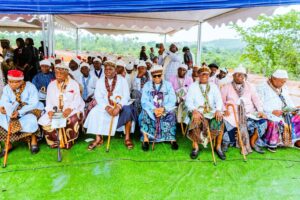
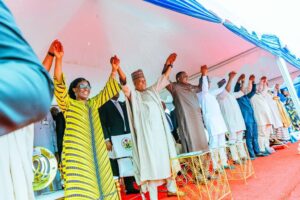
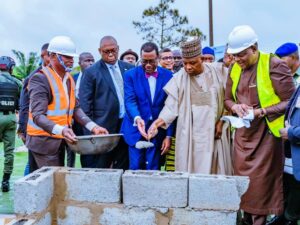
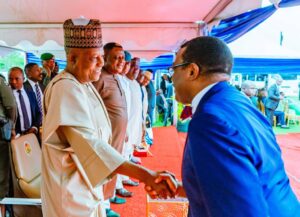
Stanley Nkwocha
Senior Special Assistant to The President on Media & Communications
(Office of The Vice President)
10th April, 2025
If you are afraid of insecurity in your village to the extent you cannot live or operate from there, then you are not qualified to answer a Dibia, Ezenwanyi, Nze, Obi, Ezeani, Igwe.- Nze Tobe Osigwe

Abuja mother dumps baby by roadside

Trading platform users deny crash claim
Trending

 Trending6 months ago
Trending6 months agoNYA demands release of ‘abducted’ Imo chairman, preaches good governance
- Business6 months ago
US court acquits Air Peace boss, slams Mayfield $4000 fine

 Politics6 months ago
Politics6 months agoMexico’s new president causes concern just weeks before the US elections
- Entertainment6 months ago
Bobrisky transferred from Immigration to FCID, spends night behind bars
- Entertainment6 months ago
Bobrisky falls ill in police custody, rushed to hospital

 Politics6 months ago
Politics6 months agoRussia bans imports of agro-products from Kazakhstan after refusal to join BRICS

 Politics6 months ago
Politics6 months agoPutin invites 20 world leaders
- Politics1 year ago
Nigerian Senate passes Bill seeking the establishment of the South East Development Commission.

